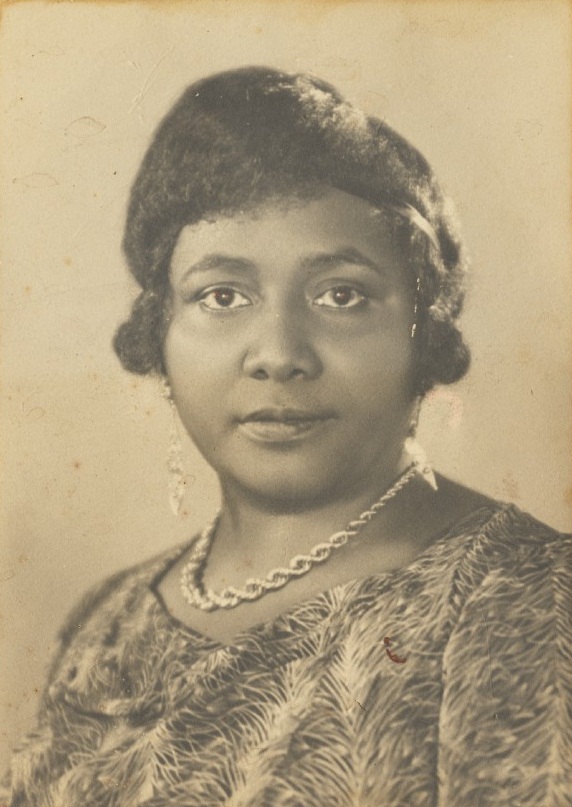<Back to Index>
- Writer and Journalist Paulette Nardal, 1896
PAGE SPONSOR

Paulette Nardal (October 12, 1896, Saint-Pierre, Martinique - February 16, 1985, Fort-de-France), was a writer and journalist from Martinique. She was a militant figure in the black cause and belonged to the Negritude literary movement.. She is the aunt of the singer Christiane Eda-Pierre.
Paulette Nardal was born in Saint-Pierre in 1896, and died in 1985, at age 89.
In 1920, Paulette Nardal left her native island and went to study in
Paris. She was the first literary figure from Martinique to study at the
Sorbonne.
There were very few French women of the Metropolis registered in this
era at the Sorbonne, and a fortiori fewer hailing from far away from the
Metropolis and from the colonies. In Paris, she took advantage of the
cultural life of the Capital. She visited theaters, helped organize
concerts, attended exhibits, etc. She was a regular at the « bal nègre ».
Paulette Nardal held a literary salon in the apartment that she shared with her two sisters, Andrée et Jeanne. Her goal was to bring together the black diaspora. She examined the question of the emancipation of women and worked on the premises of the theory of the Négritude. Her literary salon was attended by notable writers, such as Léopold Senghor, Aimé Césaire, Jean Price Mars, Léon Gontran Damas, René Maran and others from Africa, Haïti and New York, most notably those belonging to the "Harlem Renaissance".
Paulette Nardal and the Haitian writer Léo Sajous co-founded the magazine "La Revue du Monde Noir". La Revue du Monde Noir would cease publication in 1932, after six issues, because of financial difficulties. However, other writers would revive this literary movement of Négritude, such as Césaire and Senghor. She wrote: "Césaire and Senghor have adopted the ideas that we put forth and they have expounded on them more forcefully. We were only women! We have prepared the way for the men".
During that period, she became secretary of the Socialist Parliamentarian from Martinique Joseph Lagrosillière and then of Galandou Diouf, who was elected deputy from Sénégal in 1934. She was politically active, most notably against the Italian invasion of Ethiopia by Mussolini's fascist regime.
In 1937, she visited Sénégal, invited there by her friend Senghor.
In 1939, while entering Martinique by boat, a German U-Boat torpedoed the vessel she was traveling on. She was rescued but was injured and spent some time recuperating.
In 1944, she started working at the United Nations in New York, but her previous injury forced her to return permanently to Martinique.
In 1945, Paulette Nardal founded the "Rassemblement Féminin", and tried to mobilize women to vote for the first time. The Law of April 21, 1944 accorded the Right to Vote for French Women, which they would exercise for the first time on April 20, 1945.
She was passionate for music and edited a history of the musical traditions of the countryside of Martinique.
Paulette Nardal died on February 16, 1985, at the age of 89. This literary figure and political activist, pioneer of the black cause, would be remembered by her proclaimed pride of being black: "Black is beautiful".
The film by Jil Servant :”Paulette Nardal, la fierté d’être négresse”, retraces the path of Paulette Nardal, who became the first woman from Martinique to study at the Sorbonne.